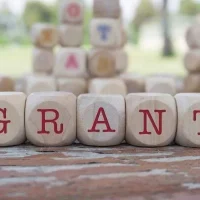Deadline: 21-Sep-21
European Commission is inviting proposals for improved supportive, palliative, survivorship and end-of-life care of cancer patients.
The complexity of health conditions related to cancer and late or long-term side effects as consequences of its treatments affect the quality of life of cancer patients and their families and pose a significant societal and economic burden.
Palliative, supportive, survivorship and end-of-life care approaches improve the quality of life for cancer patients and professional and family caregivers through the prevention and relief of suffering by means of early identification, assessment and treatment of pain and other problems such as physical, psychosocial and spiritual problems.
Proposals should address all of the following activities:
- Demonstrate the effectiveness and cost-effectiveness of newly proposed or specifically adapted pharmacological and/or non-pharmacological interventions to improve well-being and the quality of life of cancer patients.
- Serious late and long-term side effects of cancer treatments or symptoms that occur at the end of life of those patients as well as of cancer survivors should be considered.
- The legal and ethical aspects of the proposed interventions should be taken into consideration and be fully addressed.
- Prove the feasibility of integrating the proposed interventions in current pain management, palliative, supportive, survivorship and/or end-of-life care regimes and healthcare systems across Europe.
- The complex human, social, cultural and ethical aspects that are necessarily managed by those care regimes and healthcare systems should be reflected from the patients’ perspectives as well as those of their professional and family caregivers.
- The views and values of patients and their caregivers (including families, volunteers, nurses and others) should also be appropriately taken into account in patient-centred care decisions.
- Identify and analyse relationships between sex, gender, age, disabilities and socio-economic factors in health and any other relevant factors (e.g. ethical, familial, cultural considerations, including personal beliefs and religious perspectives, etc.) that could affect health equity of the proposed interventions, including equitable access.
- Analyse the barriers and opportunities to re-invigorating and enhancing timely social inclusion and active engagement of cancer patients in need of supportive, palliative, survivorship and end-of-life care and their caregivers.
- Provide guidelines for patient-centred communication as well as standards for evidence-based communication trainings for caregivers, considering the potential of social innovation approaches or tools.
- When relevant, provide policy recommendations for pain management, psychological and/or spiritual support, and supportive, palliative, survivorship or end-of-life care of cancer patients afflicted by late and long-term side effects of cancer treatments.
Funding Information
The check will normally be done for the coordinator if the requested grant amount is equal to or greater than EUR 500 000, except for:
- public bodies (entities established as a public body under national law, including local, regional or national authorities) or international organisations; and
- cases where the individual requested grant amount is not more than EUR 60 000 (lowvalue grant).
Expected Outcomes
This topic aims at supporting activities that are enabling or contributing to one or several expected impacts of destination 3 “Tackling diseases and reducing disease burden”.
To that end, proposals under this topic should aim for delivering results that are directed, tailored towards and contributing to all of the following expected outcomes:
- Reduced health-related suffering and improved well-being and quality of life for cancer patients in need of supportive, palliative, survivorship or end-of-life care as well as for their professional and family caregivers.
- Cancer patients (independently of their age) have early and better access to supportive, palliative, survivorship or end-of-life care services of higher quality and (cost)effectiveness.
- Reduced societal, healthcare and economic burden associated with increasing demands of supportive, palliative, survivorship or end-of-life care services that is beneficial for citizens and preserves the sustainability of the health care systems.
- Health care providers and health policy makers have access to and use improved clinical guidelines and policies with respect to pain management, psychological and/or spiritual support, and supportive, palliative, survivorship or end-of-life care for cancer patients.
- Cancer patients and their professional and family caregivers use the improved evidence-based and information-driven palliative care decision-making process.
Eligibility Criteria
To be eligible for funding, applicants must be established in one of the eligible countries, i.e.:
- the Member States of the European Union, including their outermost regions;
- the Overseas Countries and Territories (OCTs) linked to the Member States;
- eligible non-EU countries:
- countries associated to Horizon Europe;
- low- and middle-income countries .
- In recognition of the opening of the US National Institutes of Health’s programmes to European researchers, any legal entity established in the United States of America is eligible to receive Union funding to support its participation in projects.
For more information, visit https://bit.ly/3s3gRET





![Call for Applications: “Voices in Motion” Program [Sri Lanka] - fundsforNGOs Call for Applications: “Voices in Motion” Program [Sri Lanka]](https://www2.fundsforngos.org/wp-content/uploads/2023/04/dance-200x200.jpg)



































